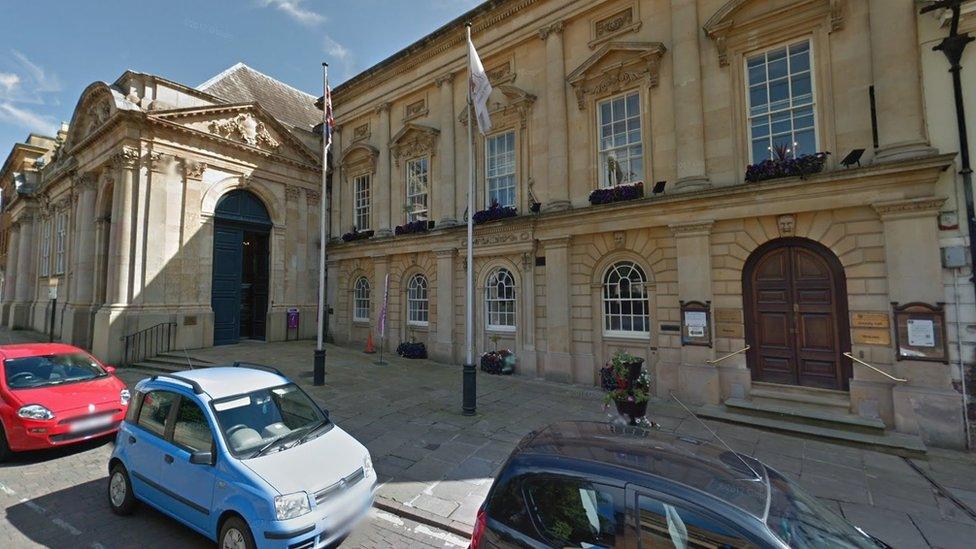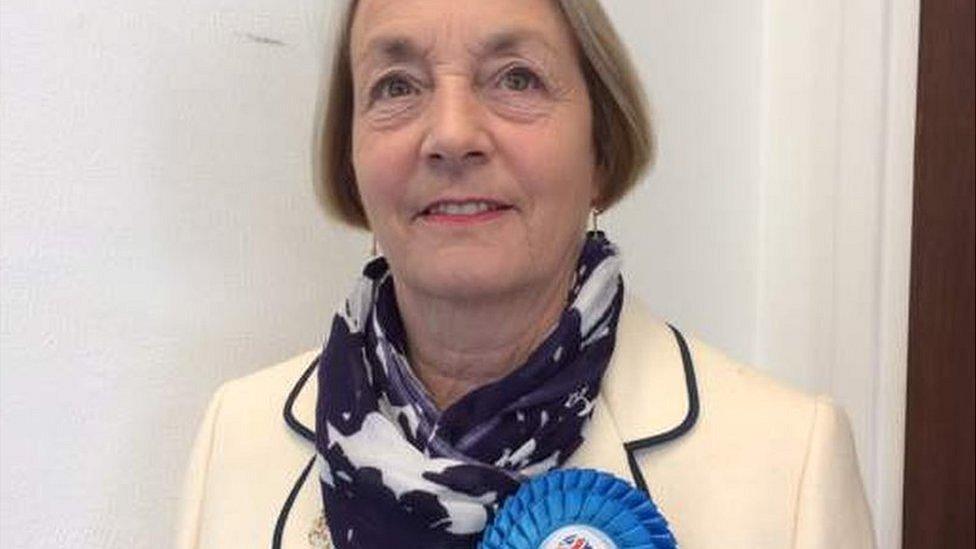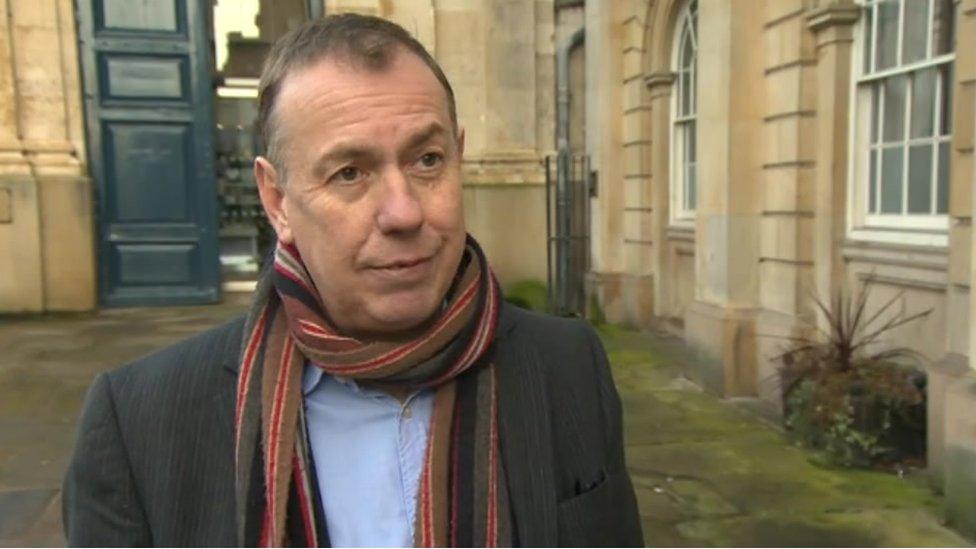Northamptonshire council tax to increase by nearly 5%
- Published

Northamptonshire residents face cuts in services and a council tax increase of nearly 5%
Residents face a council tax rise of 4.98% as Northamptonshire County Council looks to make cuts of £34.3m.
The Conservative-run council said it was facing huge demand for services, as well as cuts in government grants.
The council's budget for 2018/19 is set at £435.54m under proposals set to go before its cabinet on Tuesday.
Leader Heather Smith said the authority wanted to "protect the most vulnerable" but Labour said historically it had failed to find new revenue sources.
Under the plans, a Band D household would see council tax rise from £1,166.59 to £1,224.69, bringing in overall revenue of £292.86m.
Further income would come from business rates, government grants, interest payments, increased fees, parking charges and reserves.
A council tax rise above 2% should require a referendum but rules allow an extra 3% precept for social care.

Heather Smith said the council received "significantly less" in government funds than other authorities and this had been made known to Whitehall
The council, which has 42 Conservative members, said savings would be made mainly in non-statutory areas, directing an additional £48.5m into services for the most vulnerable, including an extra £24.6m on adult social care and £11m on children's services.
It said while some jobs could be lost, redundancies were "not likely to be significant".
The budget plans propose more use of technology in dealing with the public and in back office administration.
Telephone and email contact would be removed from services available online, such as libraries, adult training, schools admissions and registrations.

Mick Scrimshaw, Labour's spokesman on finance said, the council had buried its head in the sand for years
Support for children's centres, customer services and use of consultants would be cut and agency jobs made permanent.
Ms Smith said: "Due to increasing demand on services and reducing levels of government funding, we are having to take a hard look at our all discretionary services and prioritise areas that protect the most vulnerable.
"In our consultation so far many people have suggested they would be prepared to pay more tax to protect frontline services."
Councillor Mick Scrimshaw, Labour's finance spokesman, said the local authority had been "burying its head in the sand for years".
"It had not put to government a strong enough case for funding and until now had not looked for extra revenue streams," he said.
"It had never historically looked at the whole issue of council tax."
- Published13 September 2017

- Published5 May 2017
